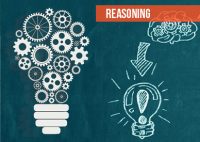Alpha Numeric For SBI PO Set – 15

Alpha Numeric For SBI PO Set – 15
1) Use of the following series of elements (letter-number-symbol) to answer these questions. Every two-digit number (given in brackets) is to be treated as single number.
2 * 8 5 6 B 9 $ Q 3 E 1 7 R D 4 £ (13) U @ K (18) A (14) P
Which of the following groups of elements will come in the place of the question mark in the series given below?
6 8 2 $ B 5 E Q 9 ? £ D 7
a) 4 (13) @
b) @ (13) £
c) U £ D
d) @ (13) 4
e) None of these
2) Answer the following questions based on the arrangement given below:
Y W @ 1 & C N 3 P L B 9 ↑ = D * E 2 £ M V $ 7 # 4 F G 5
How many such symbols are there in the above arrangement which are not immediately preceded by a number and also not immediately followed by a letter?
a) Nil
b) One
c) Two
d) Three
e) None of these
3) Answer the following questions based on the arrangement given below:
Y W @ 1 & C N 3 P L B 9 ↑ = D * E 2 £ M V $ 7 # 4 F G 5
If Y W @ 1 are written in the reverse order, & C N 3 are written in the reverse order and so on, then in the new arrangement which of the following will be exactly in the middle between 9 and $?
a) ↑
b) =
c) D
d) M
e) None of these
4) Answer the following questions based on the arrangement given below:
Y W @ 1 & C N 3 P L B 9 ↑ = D * E 2 £ M V $ 7 # 4 F G 5
If (A) denotes the number of symbols immediately preceded by a number, (B) denotes the number of letters immediately followed by a symbol and (C) denotes the number of letters either not immediately followed by a number or not immediately preceded by a letter, then which of the following is the ascending order of the numbers denoted by (A), (B) and (C)?
a) (C), (A), (B)
b) (C), (B), (A)
c) (B), (C), (A)
d) (B), (A), (C)
e) None of these
5) Answer these questions referring to the symbol-letter-number sequence given below:
2 P J @ 8 $ L B 1 V # Q 6 δ G W 9 K C D 3 © ● £ 5 F R 7 A Y 4
How many symbols and numbers are there in the sequence which are immediately preceded or immediately followed by a letter which is from the first half of the English alphabet?
a) 6
b) 7
c) 8
d) 9
e) None of these
6) Answer these questions referring to the symbol-letter-number sequence given below:
2 P J @ 8 $ L B 1 V # Q 6 δ G W 9 K C D 3 © ● £ 5 F R 7 A Y 4
Four of the following five are similar in relation to their positions in the above sequence and hence form a group. Which one does not belong to that group?
a) Q K 5
b) L 6 D
c) P L δ
d) 1 G ©
e) K £ 4]
7) Answer these questions referring to the symbol-letter-number sequence given below:
2 P J @ 8 $ L B 1 V # Q 6 δ G W 9 K C D 3 © ● £ 5 F R 7 A Y 4
P @ L is to Y 7 5 in the same way as $ 1 # is to
a) R £ ©
b) F £ 3
c) 5 £ ©
d) 5 ● D
e) None of these
8) Answer these questions referring to the symbol-letter-number sequence given below:
2 P J @ 8 $ L B 1 V # Q 6 δ G W 9 K C D 3 © ● £ 5 F R 7 A Y 4
Which of the following indicates the total number of symbols, letters and numbers respectively, which get eliminated from the sequence when every second element of the sequence from your left is dropped from the sequence?
a) 5, 8, 2
b) 6, 9, 1
c) 5, 8, 1
d) 5, 9, 1
e) None of these
9) study the following arrangement of combinations of English letters, numerals and symbols carefully and answer the questions given below it:
B 5 R # 3 A 9 D E F % 4 1 @ H © I K M 2 U $ W 6 G 8 N
How many such consonants are there in the above arrangement, each of which is, immediately preceded by a number and immediately followed by a symbol?
a) None
b) one
c) two
d) three
e) more than three
10) Answer the questions given below by referring to the following arrangement of number/letter/symbols
R * T J L 2 $ D = M # 8 C % B < K 1& A W ? P E + Q @ 7 F 6
What should come in place of the question mark (?) in the series given below based on the above arrangement?
*RJ, F6@, LJ$, Q@E, D$M ?
a) PEW
b) #MC
c) PE?
d) P?T
e) None of these

